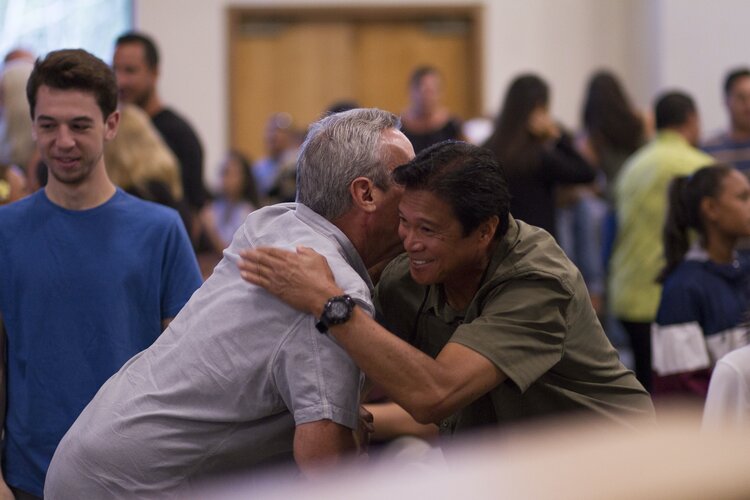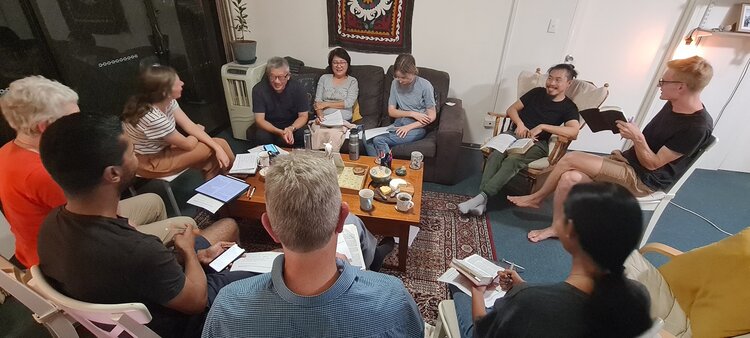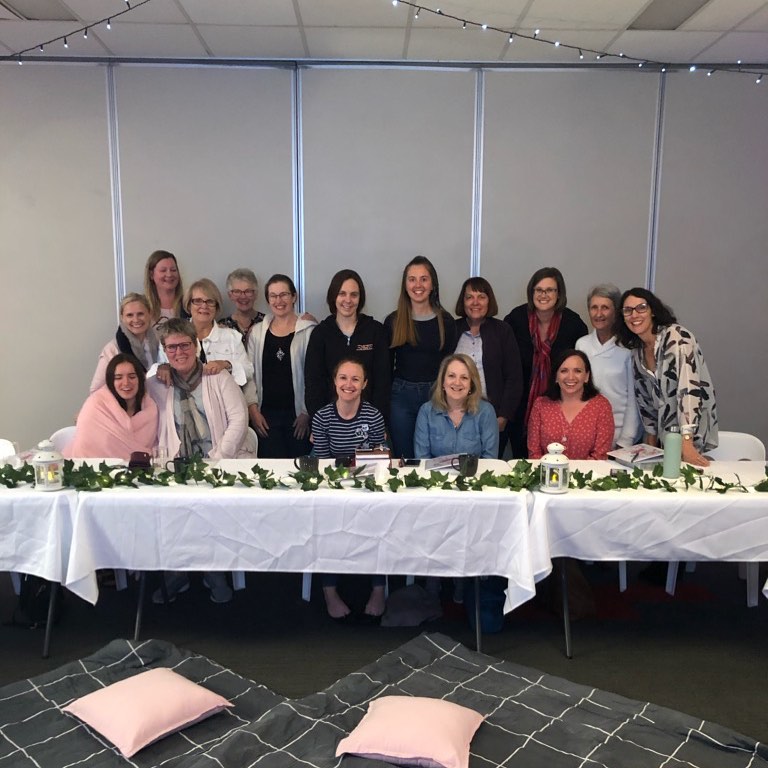Here’s an excerpt from our interview with Auburn Anglican Church, whose leader Tim Cocks and his team, build their health and vitality through initiatives such as this.
Read the conversation below.
NCLS: Do you consider this church to be flourishing?
TC: That’s a great question. In some ways yes. It’s a delight to be a part of this church and to be involved in leadership in this church. I think there are some really healthy things about our church.
I feel like we have a healthy culture, but we just want to be developing more; some good signs of health, but a long way to go. We remain a young church, a small church. I think in some ways, humanly speaking, a very fragile church, but like I’ve just said also very healthy.
NCLS: Fragile in terms of people having quite real and challenging life experiences?
TC: Yes. I think probably because of the area in which we are, Auburn particularly. A lot of people’s lives are very fragile. They’ve got painful stories to tell. When you think about our refugee friends for example, they’ve got incredibly traumatic backgrounds.
We see this as a great privilege. We welcome everybody and anybody, and we’re greatly privileged to look after people who have many needs, but our church has many people with needs. So there’s a great complexity to this ministry.
We’re very heterogeneous; we’re very diverse in our congregations in all sorts of ways. So culturally yes, but in other ways as well. Just in terms of people’s socio-economic background, or knowledge of English, or knowledge of the Bible, or church background, or age. We’re diverse in all those sort of ways as well.
So it’s a very complex ministry that takes a sophisticated approach, I think, while remembering the big simple principles of ministry through the Word of God. In prayerful dependence upon God in loving relationships.
NCLS: As you’re speaking about sophistication and the different levels of needs of people, it sounds like you’re actually trying to connect with people in a way that’s meaningful and potentially unique to them.
TC: Yes, absolutely. We do want to genuinely care for people, genuinely know people, and genuinely care for them. Meeting needs where we can, but primarily feeding them the Word of God; obviously that’s everybody’s grace need.
I think people would say that our church is a church of genuine relationship, integrity. It’s not just a show. We’re not just going through the motions. We’re not just running formulaic services. People genuinely know that they’re loved by others and genuinely love others themselves. So there really is a warm sense of community in our churches.
Now again, in this area I think that’s very important. A lot of the cultures that people come from are more communal, or collectivist cultures as opposed to the more individualistic West. So people are looking for that themselves, that’s the sort of cultures they’re from.
So spending time together is very important. Spending time together over morning tea or afternoon tea after church is very important that it’s something that people do very naturally. We eat a lot of food together, meals together after church. They’re really special times. Church barbecues or just meals in here, those sorts of things.
NCLS: So hospitality is intentional in terms of welcome and inclusion?
TC: Yes, that’s right. It’s intentional. It’s always been a part of the ministry, and it’s an important part of the ministry; sharing life together.
 NCLS: And as it’s potentially also reflected in the culture of the people that are coming, it sounds like it’s easy for you.
NCLS: And as it’s potentially also reflected in the culture of the people that are coming, it sounds like it’s easy for you.
TC: Yes that’s right. It fits very well with our multicultural context. People like bonding over food. They like preparing food for others. They like showing their culture and background in preparing food, so often we’ll ask one of the ethnic groups in our church to prepare lunch, and so there’ll be a Persian spread on Sunday, for example. And then people really enjoy those times.
NCLS: So if you think of your church several years or so ago, how does it compare now to back then?
TC: It is bigger, and that’s something that I’m really thankful to God for. The growth has come slowly, it hasn’t come fast. It hasn’t been explosive in any sense, but it’s been steady, and that’s a really great thing at one level. I guess this complex ministry has become even more complex now though as we look after three congregations, and a slightly bigger staff team than when I first came. I think a challenge there has been maintaining that relational warmth in a bigger ministry. That’s a challenge that we’re facing at the moment.
I think for me personally that’s a challenge as a pastor. How do we keep pushing ahead for the sake of the Gospel, so that more people come to know Christ and grown in Christ and yet how do we do that while maintaining the warm, hospitable culture of our church; that’s a bit of a challenge at the moment.
I guess another challenge is continuing to meaningfully care for people just as we get bigger.









